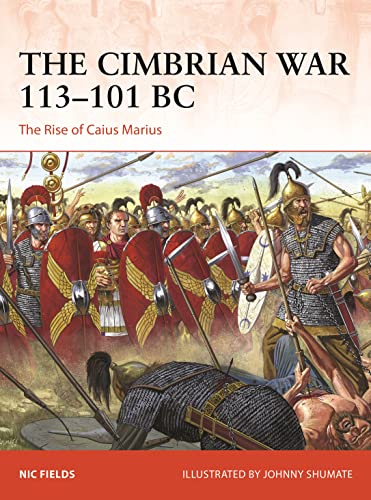

Most ebook files are in PDF format, so you can easily read them using various software such as Foxit Reader or directly on the Google Chrome browser.
Some ebook files are released by publishers in other formats such as .awz, .mobi, .epub, .fb2, etc. You may need to install specific software to read these formats on mobile/PC, such as Calibre.
Please read the tutorial at this link: https://ebookbell.com/faq
We offer FREE conversion to the popular formats you request; however, this may take some time. Therefore, right after payment, please email us, and we will try to provide the service as quickly as possible.
For some exceptional file formats or broken links (if any), please refrain from opening any disputes. Instead, email us first, and we will try to assist within a maximum of 6 hours.
EbookBell Team

4.4
72 reviewsA gripping illustrated narrative of the Cimbrian (or Cimbric) War, in which the armies of the Roman Republic finally defeated the Germanic tribes of the Cimbri, Teutons, Ambrons and Tigurini.
Rome's victory in the Cimbrian War was born of a number of huge and devastating defeats at the hands of the Germanic tribes (chiefly the Cimbri and Teutones), who had migrated en masse southwards in the late 2nd century BC. These included the defeat in 113 BC of the consul Cnaeus Papirius Carbo at Noreia; the smashing of Marcus Iunius Silanus' army near Burdigala (Bourdeaux) in 109 BC, and the humiliating destruction of two consular armies at Arausio (Orange) four years later. This work explores how, in the autumn of 105 BC, Caius Marius managed to contain the Germanic threat in the north, before crushing it in two successful battles, at Aquae Sextiae (Aix-en-Provence) in Gallia Transalpina in 102 BC and at Vercellae (Vercelli) in Gallia Cisalpina in 101 BC. Packed with stunning illustrations covering the major clashes of this epic and drawn-out war of the late Republic, this work brings to life for the first time Rome's vital quashing of the Germanic threat to its very existence. It also documents the rise of Marius, one of Rome's most important martial figures, who was highly significant in the transformation of its armed forces.